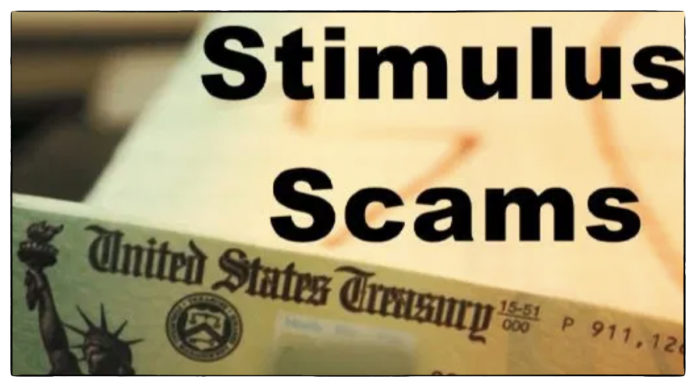Tax refunds and the upcoming release of a new round of federal stimulus checks are expected to fuel another increase in scam phone calls aimed at stealing people’s money.
That’s the message from Sgt. Kevin Barrett with the Memphis Police Department’s Economic Crimes Bureau.
“In our department, we deal with bad checks, identity theft, embezzlement, and all types of fraud,” said Barrett. “There are three common phone scams that we are seeing right now. They can be convincing, very convincing. The caller creates a sense of urgency, and says a bill or some other obligation has to be paid ‘now.’”
The BBB of the Mid-South also is issuing a scam warning about fraudulent calls claiming to be from or on behalf of a doctor’s office.
Scammers have your cell phone number. They want your money, and they are getting more sophisticated in tricking victims out of their money.
There are three major fraudulent phone calls, ranging anywhere from $300 to $2,000 from each person – calls that claim to be from the Sheriff’s Department, Memphis Light, Gas and Water Division and Social Security.
“Anyone can call from any number and spoof the call,” said Barrett. “That means the caller can disguise the number to look like a 901(from the Memphis area) call, when actually they are calling from overseas or anywhere. Sometimes, the number will look pretty similar to your number.”
With the Sheriff’s Department scam, the caller’s number will look like a real department number, except it is made up. They will claim to have a warrant out for your arrest, but due to COVID-19 or some other excuse, the warrant is not being served in person.
They will ask for a payment, using a gift card or prepaid debit card. They will ask for the card number over the phone and say they can help you resolve the matter.
The scammer creates a sense of urgency and tells the person the matter must be handled now, said Barnett.
The Sheriff’s Department will never ask for personal information over the phone.
The MLGW sting calls actually look like MLGW is calling. Instead of a phone number, the letters may show up on the caller ID.
The scammer says that the power is about to be cut off because of non-payment. Again, a person is asked to make a payment from a pre-paid or gift credit card. MLGW does not call and ask for personal information.
The third scam involves the Social Security Administration or some federal law enforcement agency. The caller will say that the SSN number has been compromised and that a rental car is in the person’s name.
Seniors are targets, as well as other populations viewed as being vulnerable.
When the caller says payment should be made from a pre-paid card, as the card number is being given over the phone, the scammer is taking the money off of the card while the phone call is in progress.
Sometimes, account information will be taken and money transferred out of a person’s account. When funds are transferred onto a pre-paid card, the money is impossible to trace.
Again, Social Security will never call and ask for payment information over the phone.
One other scam involves “Cash App” on a smart phone. If someone is having some issue with the app, the only legitimate way to get someone is through written communication on the website. There is no Cash App phone number. Yet, Google will offer several phone numbers for the app’s customer service. All of the phone numbers are fraudulent.
Regarding the BBB alert, all of the intended victims have been seniors.
One report was filed by the intended victim’s doctor’s office and in another case, the doctor’s office told the intended victim they had received multiple calls in the same day from patients about the scam.
The calls took two forms. In most of them, the scammer claimed to be with a doctor’s office and needed Medicare and/or payment information to pay an unpaid balance on a medical bill or the victim would be dropped as a patient.
In other cases, the scammers claimed a doctor had prescribed a back or knee brace for the victim and they needed Medicare or payment information.
The BBB offered these helpful tips:
- If you’re contacted by a “friend” online about a free government grant, it’s likely a scam. Report the fake contact to the social media platform.
- Don’t give out your personal or banking account information to anyone you don’t know.
- Don’t pay any money for a “free” government grant. If you have to pay money to claim a “free” grant, it isn’t really free.
- Look-alikes aren’t the real thing. Just because the caller says he’s from the “Federal Grants Administration” doesn’t mean he is. This and other names used are fakes.
- Remember that caller ID can be spoofed. They could be calling from anywhere in the world.
- To reduce the number of telemarketing calls, place your telephone number on the National Do Not Call Registry.



